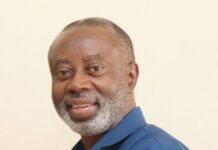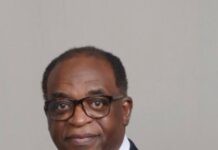
Tomorrow is the big day when for the seventh election since the return to democracy, more than 93 million Nigerians are registered to vote. It is likely to be a closely contested race with four candidates – Ahmed Bola Tinubu of the All Progressives Congress (APC), Atiku Abubakar of the People’s Democratic Party (PDP), Peter Obi of the Labour Party and Rabiu Musa Kwankwaso of the New Nigeria Peoples Party (NNPP) being the front runners.
I am observing the elections from the privileged standpoint of an analyst working with colleagues at the Centre for Democracy and Development – Election Analysis Centre (EAC). We have identified five key issues that are likely to shape the 2023 election. These ‘five I’s’ are identity, insecurity, institutions, information disorder and inter and intra party squabbles.
Nigeria’s political system, both at the federal and state levels, is characterised by prebendal patronage where political actors capture state power and use the same to advance the well-being of their ethnic or religious groups. A consequence of this is that state resources are unevenly distributed to the advantage of majority groups, thereby making political representation and access to power highly competitive in the country. In addressing these concerns, the political elite, across party lines, have adopted approaches such as power rotation and zoning to improve the inclusivity of minority groups.
The three leading presidential candidates Ahmed Bola Tinubu of the APC, Atiku Abubakar of the PDP and Peter Obi of the Labour Party are from the Yoruba, Fulani and Igbo ethnic groups respectively. Candidates are expected to perform better than their opponents in their ‘home’ geo-political zones, while opposition party members may face repression from state and non-state actors in these areas. Religion may also be a prominent determinant of the outcome of the 2023 elections. The APC’s decision to run a Muslim-Muslim ticket has heightened religious tensions in the country. Conventionally leading parties have sought to balance their presidential tickets to ensure that both major faiths are represented and there are concerns about what impact a single ticket victory would have for faith relations in the country.
Nigerians will go to the polls in 2023 amidst a host of security challenges. All six geopolitical zones of the country are confronted by insecurity, which has led to the deployment of the Nigerian military across the federation. Northern states are engulfed in long-standing violence with extremist jihadist groups, criminal bandit gangs, and other non-stated armed groups who are engaged in deadly attacks against local communities. In the south, civil unrest continues against the backdrop of ongoing violence between farmers and herders and secessionist agitators. Over half of the 36 states experienced an increase in the number of conflict events in 2022, as compared with 2021, according to data from the Nigeria Election Violence Tracker a partnership between the Armed Conflict Location & Event Data Project (ACLED) and Centre for Democracy and Development (CDD). The situation is further complicated by fuel and currency scarcity which is increasing economic hardships on the more than 130 million Nigerians classified as multidimensionally poor.
The insecurity challenges have the potential to impact on the quality of the forthcoming elections. It could even determine whether elections will hold all across the country given the threat they pose to the security of voters, electoral materials, and poll officials across the more than 176,000 polling units. Targeted attacks on Independent National Electoral Commission (INEC) offices and staff have been on the rise in the last year.
The success of any electoral process is dependent on the credibility, transparency and efficiency of stakeholders that manage, regulate, and secure the process. Saddled with the responsibility of establishing the rules of play and conducting the 2023 elections, INEC is a central election stakeholder and has demonstrated a strong commitment to ensuring the holding of safe, credible and on-time elections. The introduction of the 2022 Electoral Act supports the use of technology such as the Bimodal Voter Accreditation System (BVAS), a facial recognition system aiding voter accreditation, and the INEC result viewing portal have boosted confidence in the system.
Already faced with a gargantuan logistical operation, those charged with managing the elections across the country are further challenged by the prevailing insecurity and the Central Bank of Nigeria’s (CBN) efforts to push a cashless policy. INEC and its supporting agencies rely heavily on cash to deploy more than a million-field staff and to ensure the safe delivery of election day materials. Local printing of materials and other sub-contracted services have already been affected by the cash shortages. INEC will also find it extremely difficult to effectively deploy logistics and staff to remote locations. It normally pays transporters and provide resources for more than a million ad-hoc staff in the 8,809 political wards in cash.
Whilst social media has opened avenues for citizens to engage more robustly with their prospective representatives the volume of misinformation – the sharing of falsehoods without knowing they are false – and disinformation – which implies a deliberate intent to mislead – circulating online can also lead to citizen actions based on incorrect information. Tactics used by social media influencers, who are often paid to promote a particular political agenda, include hashtag manipulation, the use of automated or controlled networks, deliberate mistranslation, false impersonation, and manipulated audio and video material. More than in previous polls digital misinformation and disinformation on social media has shaped the coverage of the campaigns of mainstream media, with online influencers having an outsized role in setting the agenda. Information that begins as a rumour on WhatsApp or through Twitter can be picked up by media houses or shared by influential community figures creating a litany of indirect users alongside those with direct access. Pre-existing cleavages, identity politics and the insecure political and ethnoreligious landscape of the Nigeria’ democratic system further engenders the spread of disinformation with the risk that it can even impact on national cohesion.
Trust is a scarce commodity in Nigeria and this fact is only being exacerbated by the volume of misleading content online. Ahead of the forthcoming polls renewed sophistication and organisation in the push of disinformation has been observed with efforts generally focused on glorifying or delegitimising political aspirants and undermining the credibility of INEC.
Ahead of the February 2023 elections, violence targeting political party supporters has trended upwards. In the last quarter of 2022, violence targeting political parties reached its highest point since the previous general election in early 2019. In total there have been 60 attacks recorded on political rallies, resulting in nine fatalities since the start of campaigning on 28 September.
Intra-party contestation has also been a feature of the 2023 campaign. The APC initially experienced some internal division from Christians in the party, unhappy at the unwillingness of Tinubu to balance the presidential ticket. But more substantive divisions have emerged, and spilled into the public sphere, following the CBN’s demonetisation policy. Prominent APC governors have openly accused senior officials in the presidency, and tacitly the president himself, of working against the interest of the party and in favour of Atiku, a fellow Fulani and northerner. Atiku himself has endured a divided party throughout the campaigns, with the G5, refusing to support his candidacy in frustration at the PDPs failure to adhere to zoning principles in the selection of its flagbearer and party chairman.
This could result in the PDP losing votes in the south-south geopolitical zone, historically a stronghold of party.
To enhance Nigeria’s elections, the government should ensure that key election stakeholders – in particular INEC and the security agencies – have the necessary resources at their disposal to roll out their comprehensive plans for election day operations that ensure polls take place in a safe, free and fair environment. Political parties must ensure that their members and supporters adhere to the conditions laid out in the National Peace Accord through the voting process and after the announcement of results. INEC continues to communicate regularly with Nigerians about the ongoing election process and is as transparent as possible during the collation and announcement of results. The Inter-Agency Consultative Committee on Election Security must ensure that all security personnel on electoral duty adhere to the agreed code of conduct and rules of engagement. Social media companies support the work of factchecking organisations by promptly taking down digital content that promotes political disinformation or hate speech that relates to the election.



